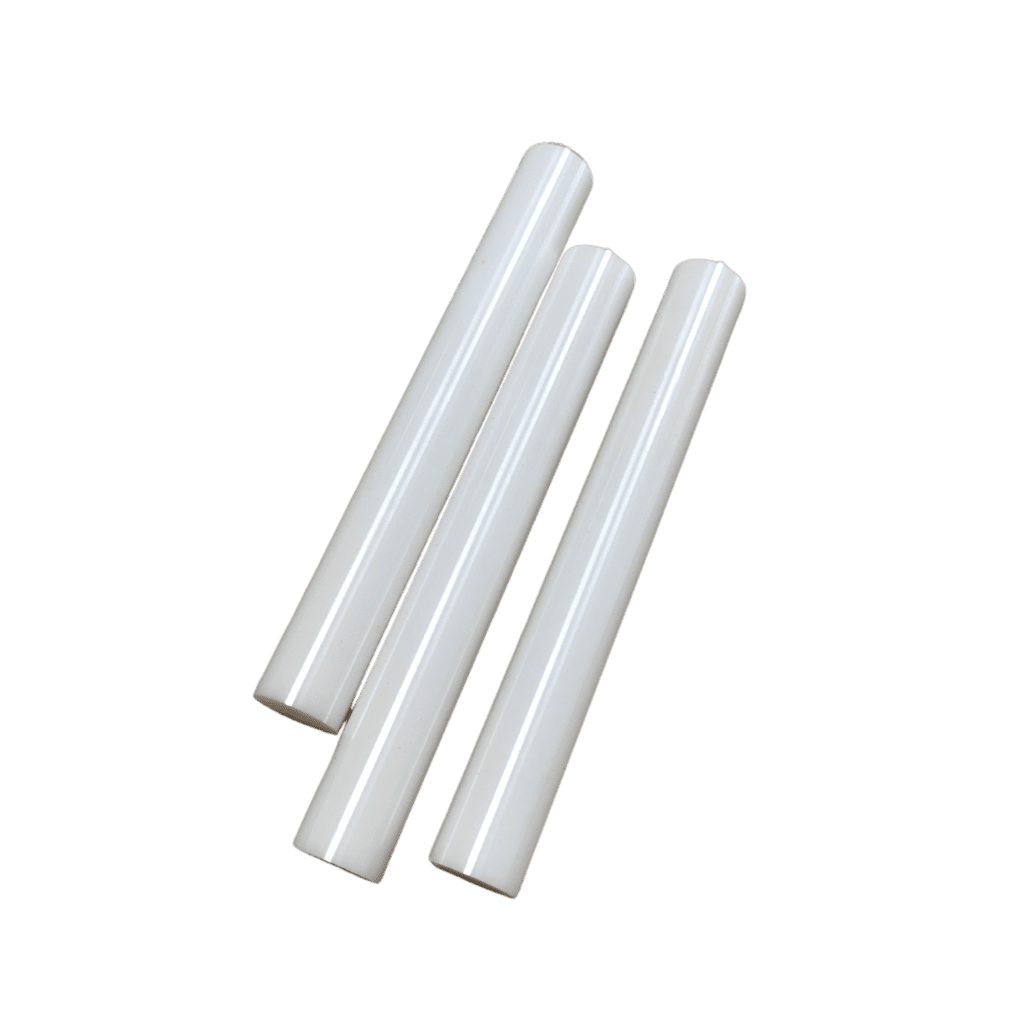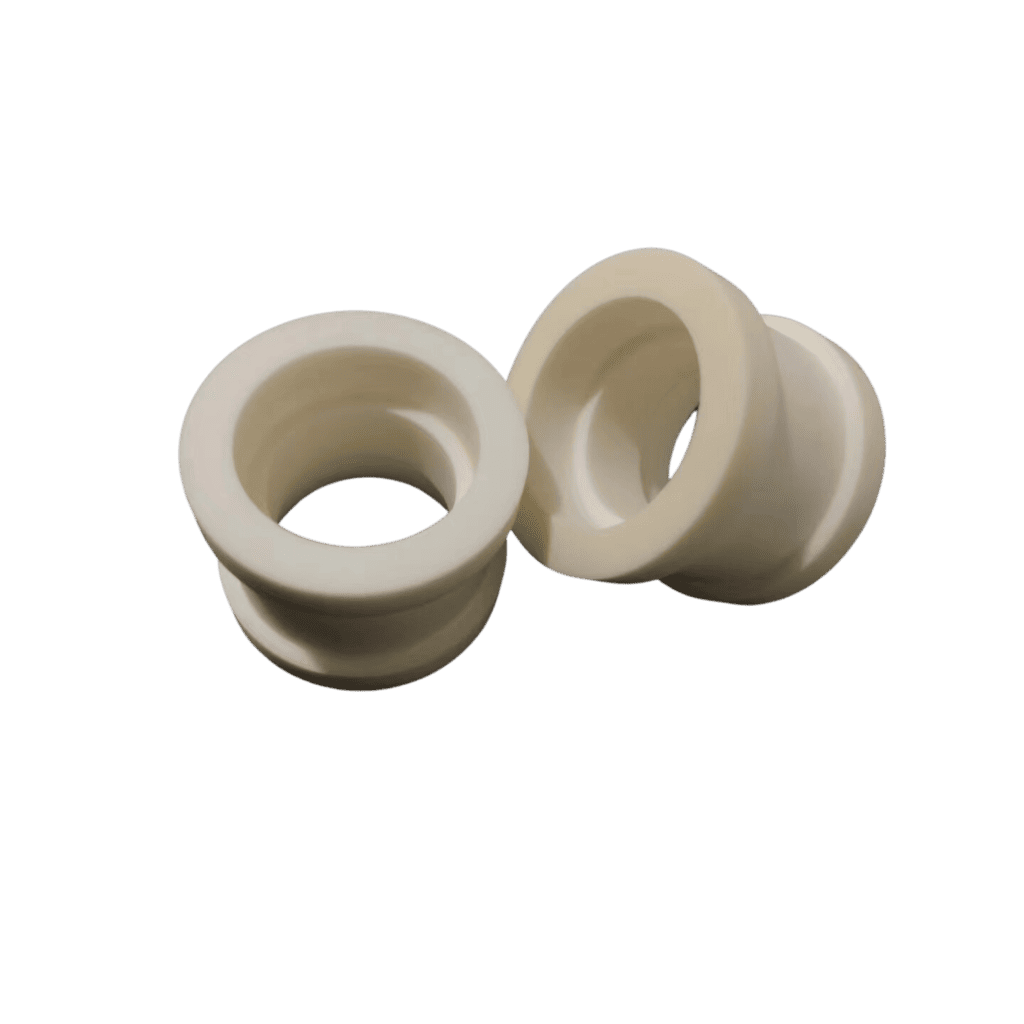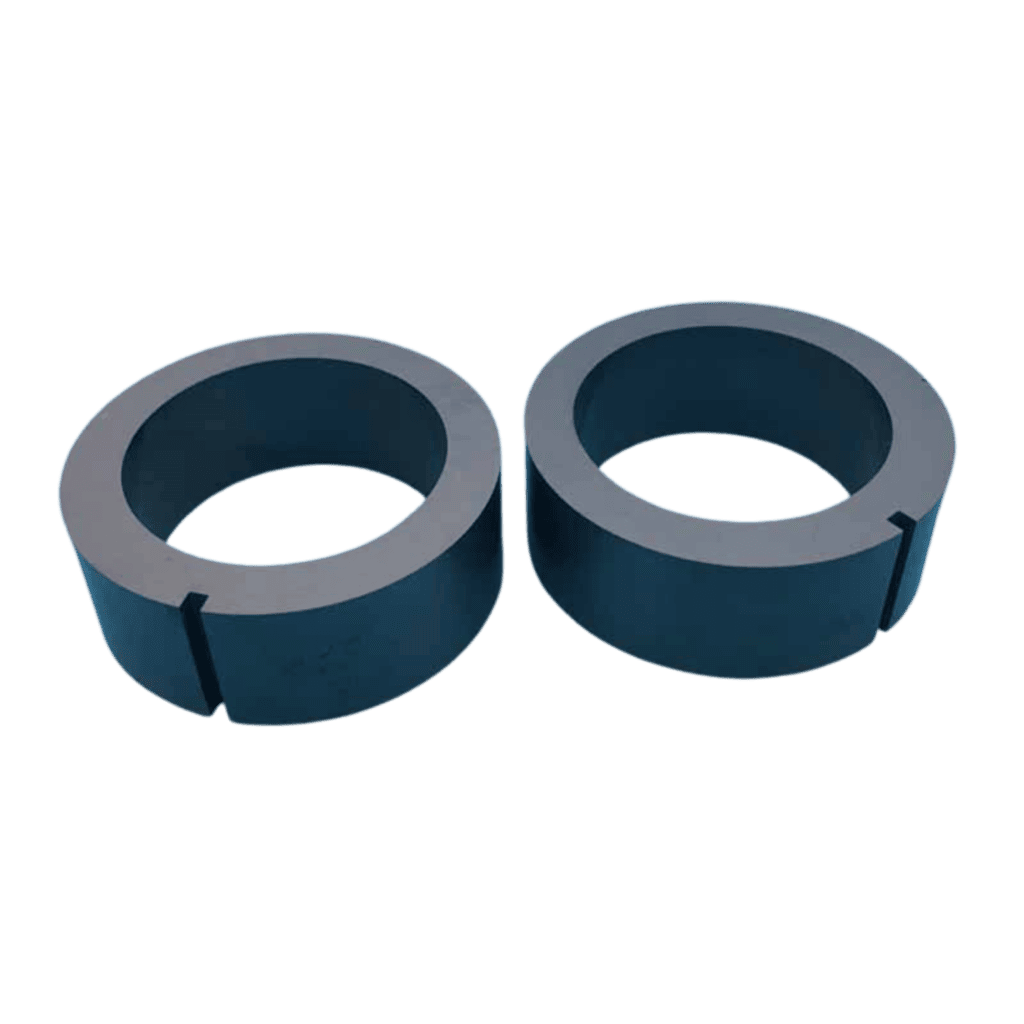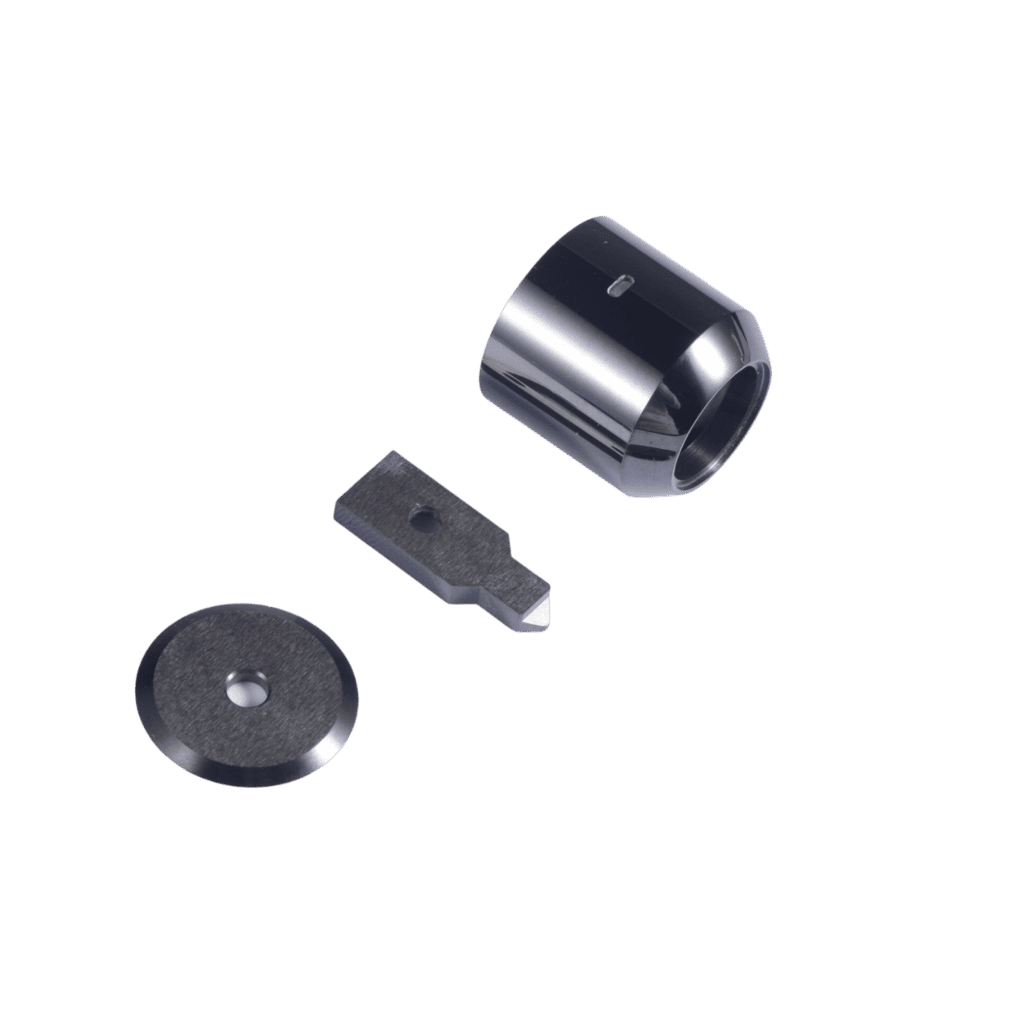Si3N4 Silicon Nitride Ceramics
Silicon nitride ceramics are a type of advanced material made by combining silicon and nitrogen. Silicon nitride ceramics are ideal for high-temperature applications due to their high temperature resistance, low thermal expansion, and excellent thermal shock resistance.
Details of Silicon Nitride Ceramics
What is Silicon Nitride Ceramic?
Silicon nitride ceramics are a type of advanced ceramic material that is made by combining silicon and nitrogen. It is a non-oxide ceramic that has a unique crystal structure that gives it exceptional strength and toughness.
Silicon nitride ceramics are known for their excellent mechanical, thermal, and chemical properties, which make them ideal for use in various industries.
Properties of Silicon Nitride Ceramic
Mian color of Si3N4 Ceramics is black.
Silicon nitride ceramic parts are becoming increasingly popular in various industries due to their excellent mechanical, thermal, and chemical properties. These parts are used in a wide range of applications, including aerospace, automotive, medical, and electronics.
Following is the property sheet:
| Type | Unit | Test Standard | Silicon Nitride |
| Material | Si₃N₄ | ||
| Colour | black | ||
| Density | g/cm³ | ISO18754:2003 | 3.2 |
| Flexural strength | Mpa | ASTM-C1161-13 | 700 |
| Compressive Strength | Mpa | GB/T8489-2006 | 3000 |
| Modules of Elasticity (young) | Gpa | ASTM-C1198-09 | 290 |
| Fracture Toughness | MPa*m1/2 | ASTM-C1421-18 | 6 |
| Poision’s Ratio | ASTM-C1421-18 | 0.28 | |
| Hardness HRA | HRA | RICKWELL 60N | 91.5 |
| Vickers Hardness | HV1 | ASTM-C1327-15 | 1600 |
| Thermal Expansion Coefficient | 10-6K-1 | ASTM-E1461-13 | 3.2 |
| Thermal Conductivity | W/mk | ASTM-E1461-13 | 30 |
| Thermal Shock Resistance | △T.℃ | / | 600 |
| Max Use Temperature in oxidizing Atmosphere | ℃ | NO LOAD CONDITION | 1300 |
| Max use Temperatur in reducing or Inert Atmosphere | ℃ | NO LOAD CONDITION | 1400 |
| Volume Resistivity at 20°C | Ωcm | / | 1014 |
| Dielectric Strength | kV/mm | / | 15 |
| Dielectric Constant (1MHN) | ASTM-D2149-13 | 9 | |
| Dielectric Loss Angle at 20C, 1MHz | tanδ | ASTM-D2149-13 | 4X10-3 |
Advantages of Silicon Nitride Ceramics
High hardness: Alumina ceramics are extremely hard and have a high resistance to wear and abrasion.
High strength: Alumina ceramics have high compressive strength, making them ideal for use in high-stress applications.
High temperature resistance: Alumina ceramics can withstand high temperatures without degrading or losing their properties.
Chemical resistance: Alumina ceramics are highly resistant to chemical attack, making them ideal for use in harsh chemical environments.
Electrical insulation: Alumina ceramics are excellent electrical insulators, making them ideal for use in electrical and electronic applications.
Biocompatibility: Alumina ceramics are biocompatible, meaning they can be used in medical applications without causing harm to the body.
Low thermal expansion: Alumina ceramics have a low coefficient of thermal expansion, meaning they do not expand or contract significantly with changes in temperature.
High stiffness: Alumina ceramics have a high modulus of elasticity, making them stiff and resistant to deformation.
Usages of Silicon Nitride Ceramics
Silicon nitride ceramics have a wide range of applications due to their excellent mechanical, thermal, and chemical properties. Some of the common usages of silicon nitride ceramics are:
Bearings: Silicon nitride ceramics are used in high-performance bearings due to their high strength, wear resistance, and low friction coefficient.
Cutting tools: Silicon nitride ceramics are used in cutting tools due to their high hardness, toughness, and resistance to wear and thermal shock.
Heat exchangers: Silicon nitride ceramics are used in heat exchangers due to their high thermal conductivity, resistance to thermal shock, and corrosion resistance.
Automotive components: Silicon nitride ceramics are used in automotive components such as turbochargers, engine parts, and exhaust gas recirculation valves due to their high strength, wear resistance, and thermal stability.
Aerospace components: Silicon nitride ceramics are used in aerospace components such as turbine blades, heat shields, and rocket nozzles due to their high strength, thermal stability, and resistance to corrosion and wear.
Medical implants: Silicon nitride ceramics are used in medical implants such as hip and knee replacements due to their biocompatibility, high strength, and wear resistance.
Electronics: Silicon nitride ceramics are used in electronics such as substrates, insulators, and capacitors due to their high dielectric strength, thermal stability, and resistance to thermal shock.
Provide ON-SITE GUIDANCE for orders over $300,000
Compared to steel, technical ceramics have the potential to significantly increase the lifespan of equipment and enhance product precision
The whole production processes of Silicon Nitride Ceramics
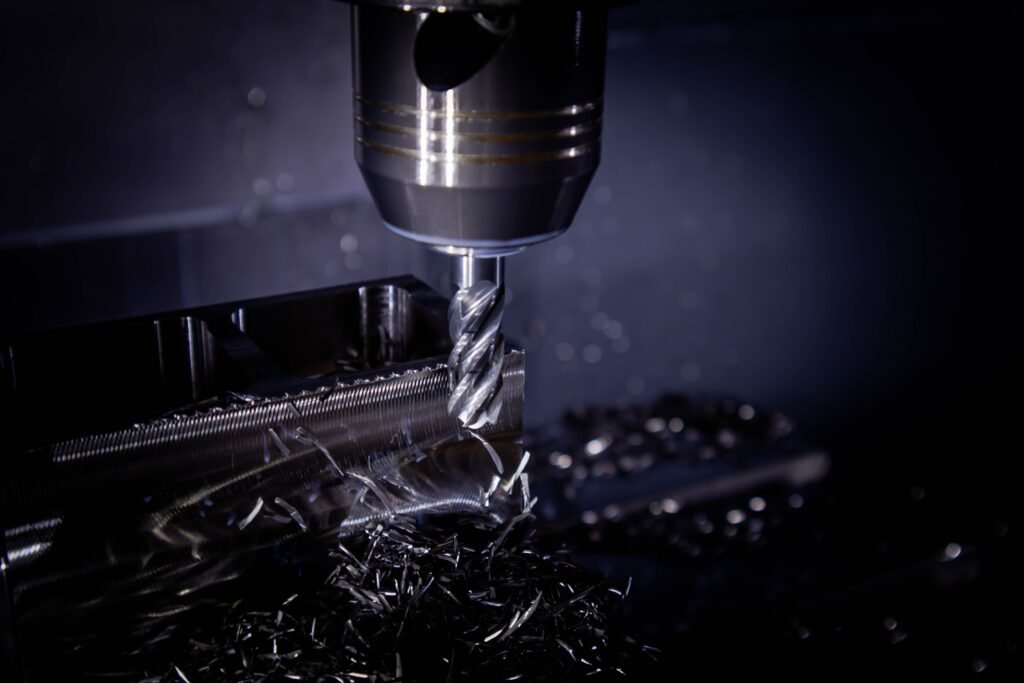
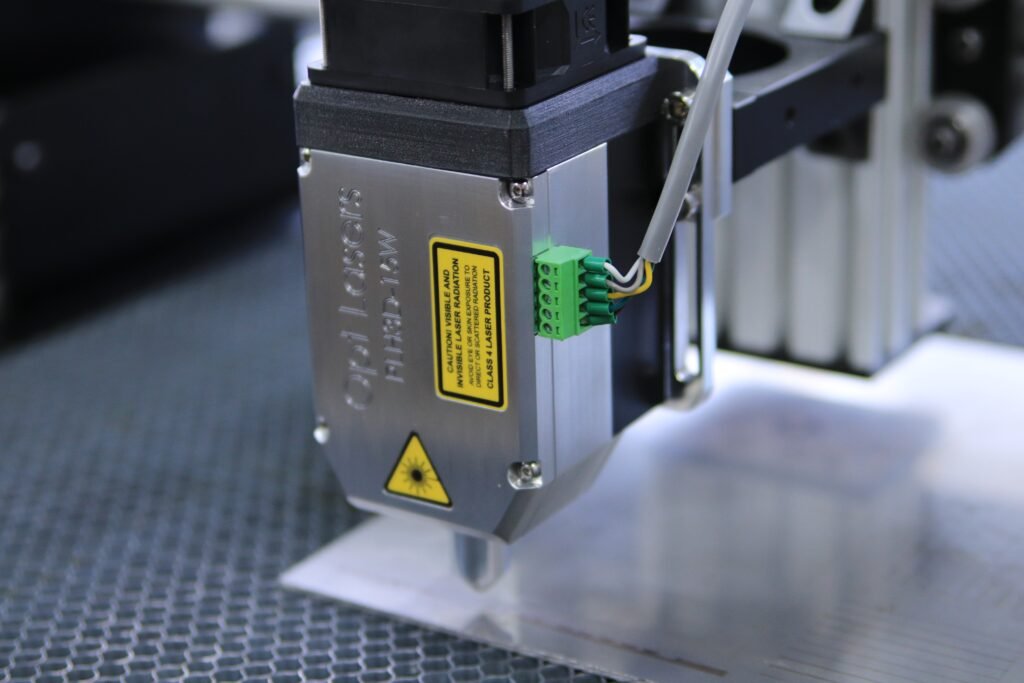
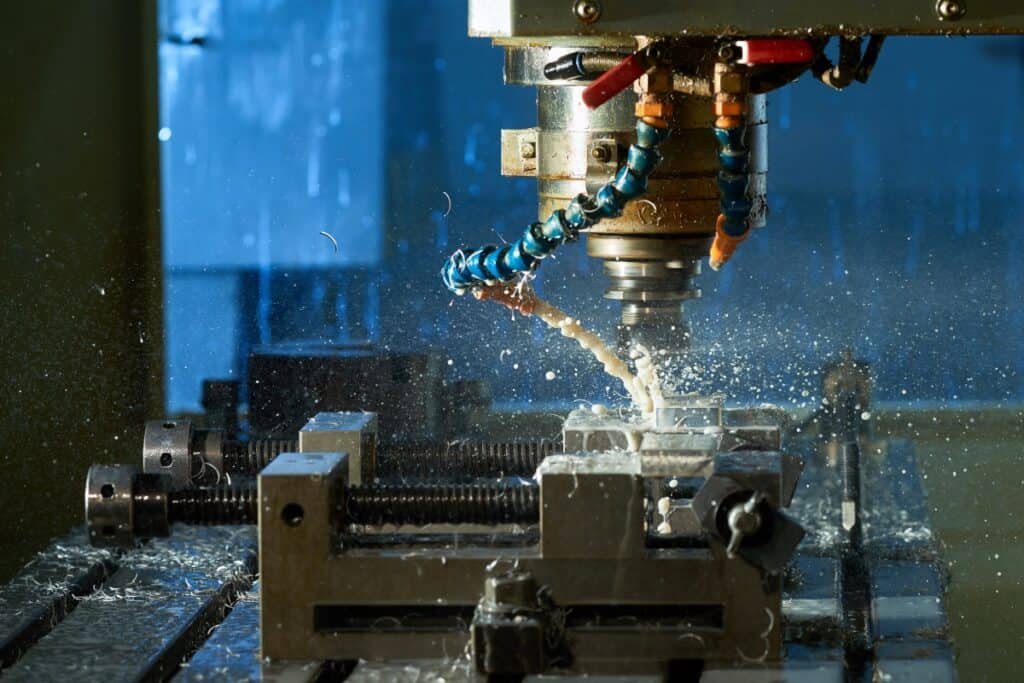
Shaping
Shaping the ceramic material into the desired form. This can be done using a variety of techniques, including extrusion, injection molding, or pressing. The shaped material is then dried to remove any excess moisture.
Sintering
The part is sintered at high temperatures, typically between 170°C and 190°C, to form a dense and strong ceramic material.
Machining
After sintering, the ceramic part may require additional machining to achieve the desired dimensions and surface finish. This can be done using techniques such as grinding, milling, or polishing.
Finishing
After machining, the ceramic material may be finished by grinding, polishing, or other techniques to achieve the desired surface finish and dimensional accuracy.
Quality Control
Throughout the production process, the ceramic material is subjected to rigorous quality control measures to ensure that it meets the required specifications for strength, hardness, and other properties.
Is It Good As Metals? Things You Need To Know
To save you from worries, here are some facts you need to know about our advanced ceramic parts supplies:
High Temperature Resistance
Advanced ceramics can withstand higher temperatures than most metals, making them ideal for use in high-temperature applications.
Hardness And Wear Resistance
Structural ceramics are much harder and more wear-resistant than metals, making them ideal for use in applications where wear and tear are a concern.
Corrosion Resistance
Ceramics are highly resistant to corrosion, making them ideal for use in harsh environments where metals would quickly corrode.
Electrical Insulation
Ceramics are excellent electrical insulators, making them ideal for use in electrical and electronic applications.
Biocompatibility
Some advanced ceramics are biocompatible, meaning they can be used in medical applications without causing harm to the body.
Lightweight
Ceramics are generally lighter than metals, making them ideal for use in applications where weight is a concern.
Low Thermal Expansion
Ceramics have a low coefficient of thermal expansion, meaning they do not expand or contract significantly with changes in temperature, making them ideal for use in precision applications.

